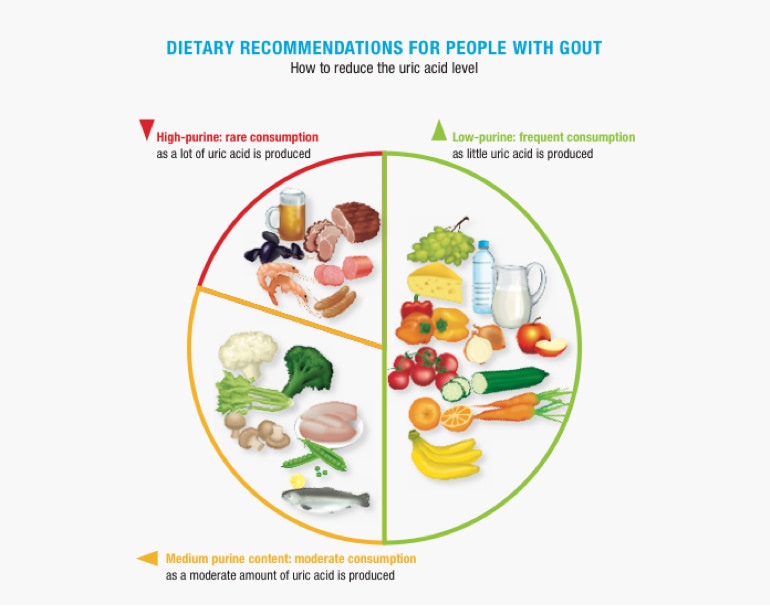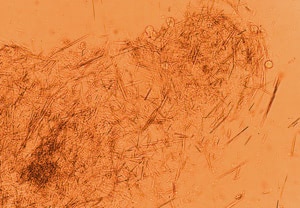How should you change your diet?
You should pay attention to the purine content of your food. A significant reduction in purine-rich foods such as meat, fish and shellfish is extremely important. Additionally, crash diets and fasting should be avoided, as they can cause a significant increase in uric acid levels. Draw up a gout diet plan for yourself. Below you can find a list of foods to avoid and what you should eat instead.
If you have other metabolic disorders, you are advised to consult your physician regarding your diet.
What can you eat and drink?
A gout diet is not a cure but may lower uric acid production and the risk of recurring painful gout attacks, as well as slowing the progression of joint damage.
What kind of foods are allowed?
Foods low in purines
- Yogurt, milk and eggs
- Whole-grain foods
- Oils rich in omega-3 fatty acids, for example rapeseed or linseed oil
- Nuts and legumes may also provide important health benefits without increasing the risk of gout
- Low-fat dairy products, including skimmed or low-fat milk, sherbet, low-fat yogurt and cottage or ricotta cheese
- High-fat dairy products, including whole milk, cream, butter, sour cream, ice cream, cream cheese, and other cheeses
- Patients with gout and a history of urolithiasis should be encouraged to drink >2 l of water daily and avoid dehydration.
What kind of foods should you avoid?
Foods rich in purines
- Meat intake is associated with an increased risk of gout (meats including beef, pork and lamb; processed meats including sausage, salami and bologna; bacon; hot dogs; hamburgers; poultry including chicken and turkey; chicken liver and beef liver)
- Seafood (like fish, shrimp, lobster and scallops)
- Purine-rich vegetables (peas, beans, lentils, spinach, mushrooms, oatmeal and cauliflower)
- Alcohol such as beer (including non alcoholic), spirits and sugary soft drinks

Why is fructose connected with gout?
Fructose (fruit sugar) is the only carbohydrate that has been shown to have a direct effect on uric acid metabolism. It also plays a role in the risk of insulin resistance syndrome, which increases the risk of diabetes, and obesity, both of which are closely associated with gout. Consuming fructose may increase uric acid levels, especially in patients with hyperuricaemia or a history of gout.
Patients should consider reducing their consumption of fructose-containing foods as part of their gout diet. Reducing the number of soft drinks for example is a good first step.
Why should you avoid alcohol, especially beer?
Ethanol (alcohol) has an effect on uric acid levels and can therefore lead to gout. Studies have shown that this risk varies according to the type of alcoholic beverage; beer poses a bigger risk than spirits, but moderate wine drinking does not appear to increase the risk of gout.
Purines in beer, such as the highly absorbable guanosine, may have an effect on blood uric acid levels, thereby posing a greater risk for gout than spirits or wine. A daily glass of wine as part of your gout diet may actually have health benefits and does not pose an increased risk of gout.

